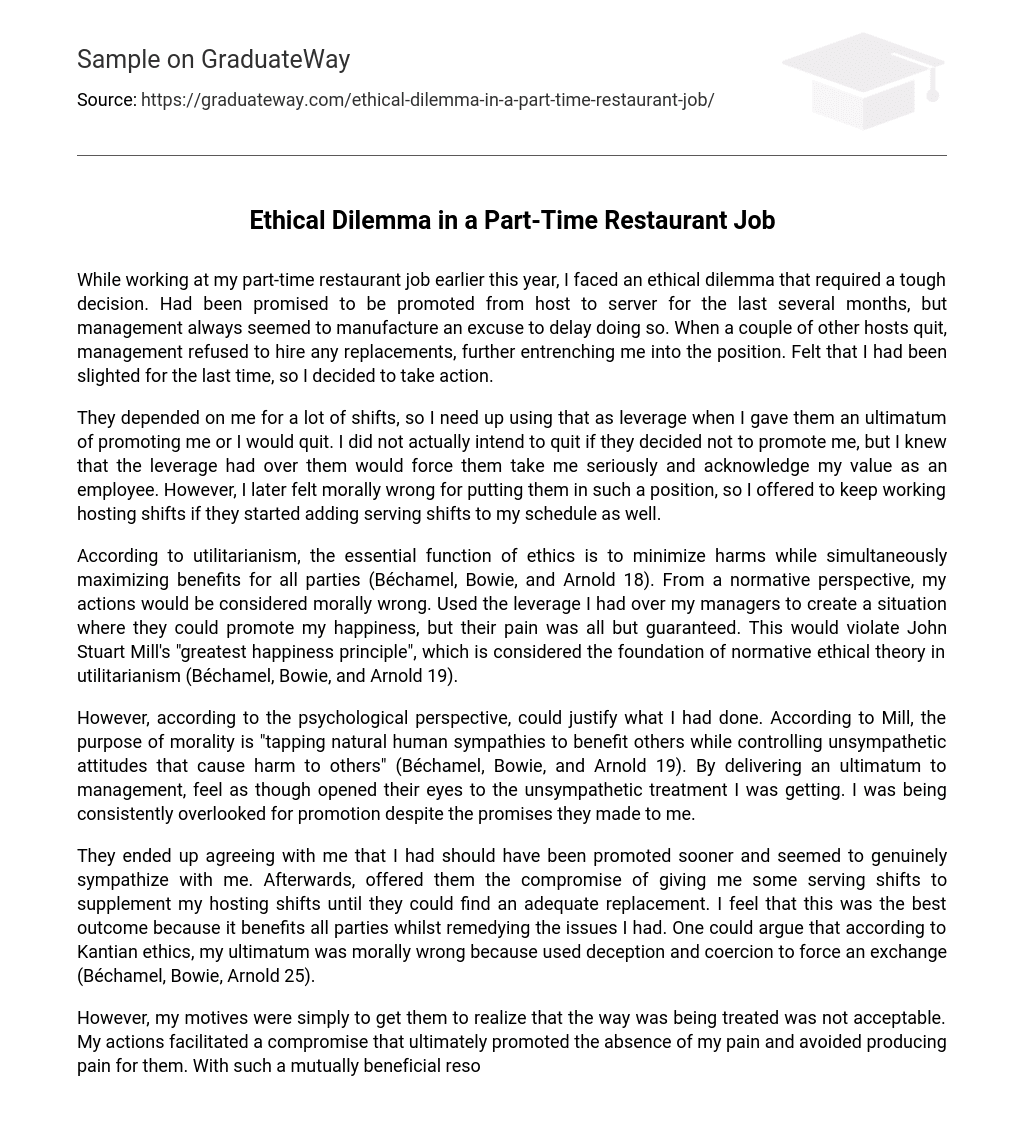While working at my part-time restaurant job earlier this year, I faced an ethical dilemma that required a tough decision. Had been promised to be promoted from host to server for the last several months, but management always seemed to manufacture an excuse to delay doing so. When a couple of other hosts quit, management refused to hire any replacements, further entrenching me into the position. Felt that I had been slighted for the last time, so I decided to take action.
They depended on me for a lot of shifts, so I need up using that as leverage when I gave them an ultimatum of promoting me or I would quit. I did not actually intend to quit if they decided not to promote me, but I knew that the leverage had over them would force them take me seriously and acknowledge my value as an employee. However, I later felt morally wrong for putting them in such a position, so I offered to keep working hosting shifts if they started adding serving shifts to my schedule as well.
According to utilitarianism, the essential function of ethics is to minimize harms while simultaneously maximizing benefits for all parties (Béchamel, Bowie, and Arnold 18). From a normative perspective, my actions would be considered morally wrong. Used the leverage I had over my managers to create a situation where they could promote my happiness, but their pain was all but guaranteed. This would violate John Stuart Mill’s “greatest happiness principle”, which is considered the foundation of normative ethical theory in utilitarianism (Béchamel, Bowie, and Arnold 19).
However, according to the psychological perspective, could justify what I had done. According to Mill, the purpose of morality is “tapping natural human sympathies to benefit others while controlling unsympathetic attitudes that cause harm to others” (Béchamel, Bowie, and Arnold 19). By delivering an ultimatum to management, feel as though opened their eyes to the unsympathetic treatment I was getting. I was being consistently overlooked for promotion despite the promises they made to me.
They ended up agreeing with me that I had should have been promoted sooner and seemed to genuinely sympathize with me. Afterwards, offered them the compromise of giving me some serving shifts to supplement my hosting shifts until they could find an adequate replacement. I feel that this was the best outcome because it benefits all parties whilst remedying the issues I had. One could argue that according to Kantian ethics, my ultimatum was morally wrong because used deception and coercion to force an exchange (Béchamel, Bowie, Arnold 25).
However, my motives were simply to get them to realize that the way was being treated was not acceptable. My actions facilitated a compromise that ultimately promoted the absence of my pain and avoided producing pain for them. With such a mutually beneficial resolution, I believe the ethics of my actions were just.





